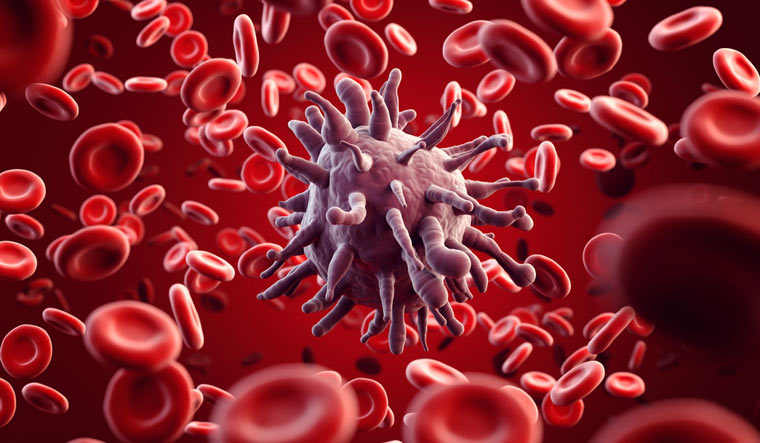Additional evidence continued to suggest blood type may not only play a role in COVID-19 susceptibility, but also severity of infection, according to two retrospective studies.
Two studies published (October 14, 2020) in Blood Advances suggest people with blood type O may have a lower risk of COVID-19 infection and reduced likelihood of severe outcomes, including organ complications, if they do get sick.
As the pandemic continues, the global biomedical research community is working urgently to identify coronavirus risk factors and potential therapeutic targets. The potential role of blood type in predicting risk and complications of COVID-19 infection has emerged as an important scientific question. These new studies add evidence that there may be an association between blood type and vulnerability to COVID-19; however, additional research is needed to better understand why and what it means for patients.
Individuals with blood type O may be less vulnerable to COVID-19 infection
Blood type O may offer some protection against COVID-19 infection, according to a retrospective study . Researchers compared Danish health registry data from more than 473,654 individuals tested for COVID-19 to data from a control group of more than 2,204,742 people from the general population. Among the COVID-19 positive, they found fewer people with blood type O and more people with A, B, and AB types.
The study results suggest that people with blood types A, B, or AB may be more likely to be infected with COVID-19 than people with type O. The researchers did not find any significant difference in rate of infection between A, B, and AB types. Since blood group distributions vary among ethnic subgroups, the researchers also controlled for ethnicity and maintained that fewer people with blood type O tested positive for the virus.
“It is very important to consider the proper control group because blood type prevalence may vary considerably in different ethnic groups and different countries,” said study author Torben Barington, MD, of Odense University Hospital and the University of Southern Denmark. “We have the advantage of a strong control group – Denmark is a small, ethnically homogenous country with a public health system and a central registry for lab data – so our control is population-based, giving our findings a strong foundation.”
Blood Type Linked to COVID-19 Severity?
Blood groups A and AB associated with increased risk of severe clinical outcomes of COVID-19 infection People with blood groups A or AB appear to exhibit greater COVID-19 disease severity than people with blood groups O or B, according to a separate retrospective study. Researchers examined data from 95 critically ill COVID-19 patients hospitalized in Vancouver, Canada. They found that patients with blood groups A or AB were more likely to require mechanical ventilation, suggesting that they had greater rates of lung injury from COVID-19. They also found more patients with blood group A and AB required dialysis for kidney failure.
Together, these findings suggest that patients in these two blood groups may have an increased risk of organ dysfunction or failure due to COVID-19 than people with blood types O or B. Furthermore, while people with blood types A and AB did not have longer overall hospital stays than those with types O or B, they did remain in the intensive care unit (ICU) for a longer average time, which may also signal a greater COVID-19 severity level.
“The unique part of our study is our focus on the severity effect of blood type on COVID-19. We observed this lung and kidney damage, and in future studies, we will want to tease out the effect of blood group and COVID-19 on other vital organs,” said study author Mypinder S. Sekhon, MD, of the University of British Columbia. “Of particular importance as we continue to traverse the pandemic, we now have a wide range of survivors who are exiting the acute part of COVID-19, but we need to explore mechanisms by which to risk stratify those with longer-term effects.”
Saturday, Nov 28, 2020
Content source:
Please Check out file at the following link
Hemo test (Indicator of Monitoring the Washing Process) (RRS 14-42110)


